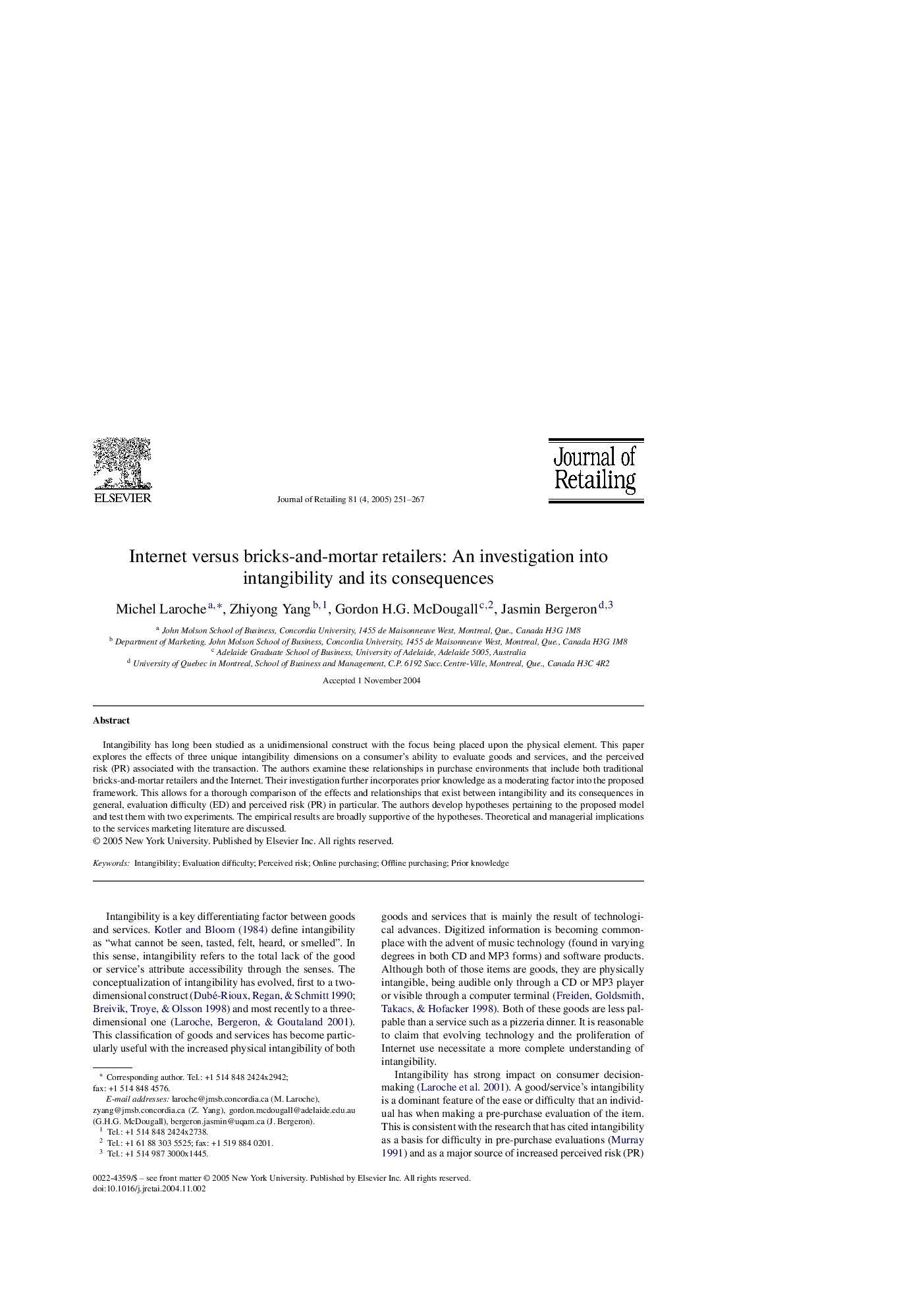| Article ID | Journal | Published Year | Pages | File Type |
|---|---|---|---|---|
| 10438979 | Journal of Retailing | 2005 | 17 Pages |
Abstract
Intangibility has long been studied as a unidimensional construct with the focus being placed upon the physical element. This paper explores the effects of three unique intangibility dimensions on a consumer's ability to evaluate goods and services, and the perceived risk (PR) associated with the transaction. The authors examine these relationships in purchase environments that include both traditional bricks-and-mortar retailers and the Internet. Their investigation further incorporates prior knowledge as a moderating factor into the proposed framework. This allows for a thorough comparison of the effects and relationships that exist between intangibility and its consequences in general, evaluation difficulty (ED) and perceived risk (PR) in particular. The authors develop hypotheses pertaining to the proposed model and test them with two experiments. The empirical results are broadly supportive of the hypotheses. Theoretical and managerial implications to the services marketing literature are discussed.
Related Topics
Social Sciences and Humanities
Business, Management and Accounting
Marketing
Authors
Michel Laroche, Zhiyong Yang, Gordon H.G. McDougall, Jasmin Bergeron,
